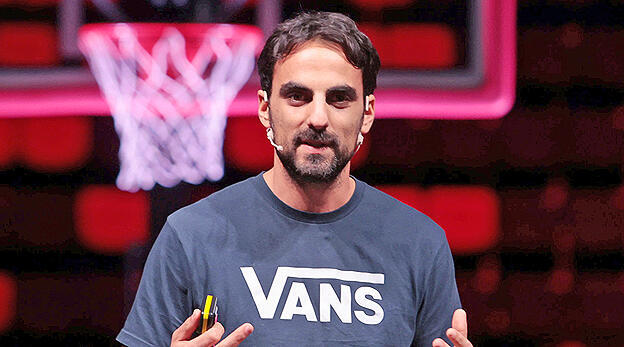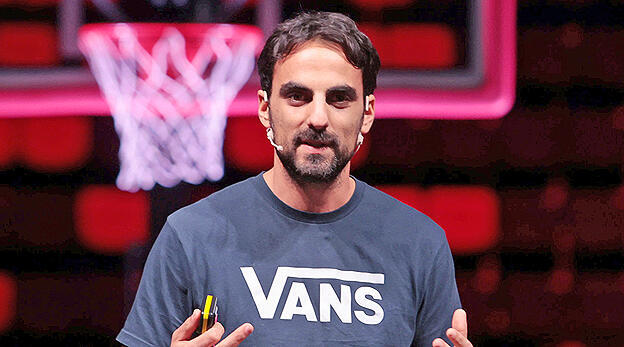
"We have created an amazing connection between the player who creates the content and the community"
"We founded Ludeo to enable others to feel experiences through video," added co-founder of Ludeo Asaf Gazit
"More than a third of the world's population plays games, but the experience is far beyond the game," said Asaf Gazit, co-founder and CEO of Ludeo, speaking at the Calcalist gaming conference held in partnership with Google and Playtika.
Ludeo deals with the post-video world, and has developed a new collaborative format. "There was a lot of talk here about the future, how we will develop games, NFT, blockchain, I want to offer a new angle: the future of content - and how it relates to the worlds of gaming. Will video continue to be the most popular format on social networks?" Gazit asked.
"I am a gamer by birth, until now I have played games for almost a year's worth of my life," he said. "I founded Ludeo with my brother Omri. Two months ago I had the privilege of going to a game of The Golden State Warriors, the NBA team I am a fan of, and getting seats on the floor. Sitting there, feeling the audience, getting to see Steph Curry play just two meters away from you, is a crazy experience. But the video I shot there doesn't convey those feelings. And that's exactly the problem with video - it has great difficulty sharing the feelings we're experiencing at that moment. We consume video in a way that is very passive, we can't change anything in it. This passivity creates some sort of emotional detachment from the content we consume. Omri and I thought - what if we could share experiences from the game and other people could feel what we feel? That's why we founded Ludeo, to enable others to feel experiences through video."
Gazit shared data on the dominance of video today: "We have been sharing content since the dawn of history, and this need remains inherent in us. What has changed is really the technology. In 1878, video was born, and since then it has become the undisputed king of content. The figure is mind-boggling - 82% of all the content we consume on the internet is via video."
The gaming industry has led to the thought that this can be changed: "It cannot be argued that we are in the age of gaming, but the experience is far beyond the game," Gazit said. "We share it on networks, and there are some that are intended for gamers such as Twitch and others. We still encounter a glass ceiling of video. Sometimes I want to take the remote and say: 'I want to enter this moment, I want to do it better.' So we established a format in Ludeo that can take every shared moment and with the push of a button you can literally enter that moment, and be that player. Anyone who clicks on the link enters the same character and starts from that moment. This produces very experiential content that is not passive, Ludeo allows you to be active. It creates an amazing connection between the creator of the content and the community, it creates a challenge because the one who shared can say to their followers: ``Let's see how you do it."
According to Gazit, the new format is already gaining momentum: "About 20% of the players discover Ludeos and enter them. The playing time has increased almost 3.5 times, the experience is intensified and the playing time has increased between the players.
"Looking to the future, we started in the gaming world and we believe in it, and we look at Ludeo as a content unit that can give huge value to every digital moment and allow people to really connect with us and take part in the experience. I will conclude with a quote from Bill Gates: 'Content is king', and we still see it everywhere. Content drives industries, people today work in creating content, and the question is what content? We believe that we in Ludeo will be the next content unit."














